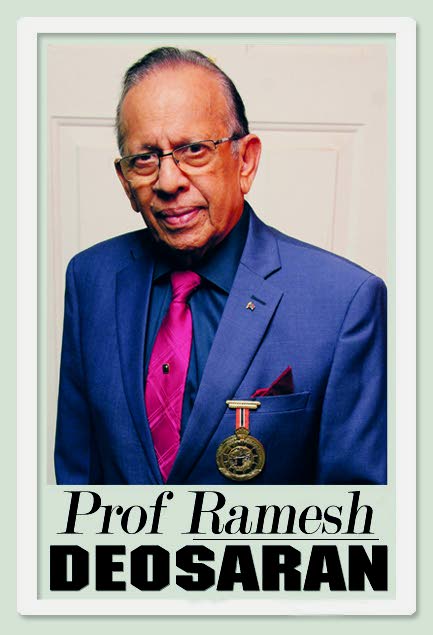Do we deserve democracy?

A healthy democracy depends not so much on the generosity of the government as it is on the vigilance and vitality of its citizens. Last week’s column listed 11 government actions and asked readers how well or badly they thought government was handling these 11 matters.
These are: Petrotrin's closure, property tax, the Paria incident and deaths, the distribution of Caroni lands, Clarence Rambharat’s resignation and return to government, local government performance and reform, gas price increase, public procurement and disposal of public property, marijuana use, crime and the hiring of British lawyers to gather evidence on allegations of corruption. This list formed the operational part of our democracy – government performance, accountability and public opinion.
The previous column explained the major purpose of a democratic government and provided several measures by which a democratic government can be measured and respected. I did so because of the increasing number of letters to the editor, radio and television interviews and repeated calls for increased political accountability. There seems to be a need now to reset before we really reach the point of no return.
A small society like ours with very widened state control attracts too much bread and butter dependency. Political control here, especially when partisan, occupies too large a space in this small democracy. It stifles equitable socio-economic opportunity and democracy itself. It makes critical thinking difficult and political victimisation easy. The preamble to our Constitution assumes too much. It assumes political neutrality that really does not exist in society.
For example, the preamble states that “there should be opportunity for advancement on the basis of recognition of merit, ability and integrity.” It further calls for “respect for moral and spiritual values and the rule of law.”
Rule of law? It’s quite upsetting, really, to hear a father, Troy Harper, pleading for “justice” after seeing his 24-year-old son, Malik, and another man John Outram, were shot dead last Tuesday. Troy’s father mourned: “I am leaving this in the hands of God. I will get justice through Jesus Christ.” Mr Harper joins many others, in deep grief over the murder of relatives, regularly calling upon “Jesus for justice” – not the courts, not the government. Why? Isn’t this a democracy with a constitution?
Of course, while some crimes are difficult to prevent, our detection and prosecution rates require significant improvement. Crime-fighting equipment also needs to improve. How prepared then are we to protect our democratic freedoms?
It isn’t only that the Office of the Director of Public Prosecutions (DPP) is severely short-staffed, it is that nobody seems to care; no civic organisation, Law Association or contesting political party making the big noise required for such an institutional failing. Is this a real democracy or what?
Last January, citizen Michael Scott, obviously disturbed by this civic numbness, publicly stated: “Civic society should seriously consider holding a requiem mass to celebrate its decision to abdicate its responsibility to TT and thereby officially mark the juncture at which it deemed our future a hopeless, hapless and desperate.” Is this true?
Now and again, however, the system awakens. Last week. Justice Ricky Rahim’s decision to reduce a contractor’s 2019 claim against the Estate Management and Business Development Company (EMBD) from $1.3 billion to $427 million. Noting the questionable relationship between the EMBD’s former CEO Seebalack Singh and the contractor, Namalco, Justice Rahim used such stirring comments as “breach of fiduciary duty,” and “unlawful means conspiracy.”
Noting the political climate around this case, the judge declared: “The courts have never been and ought never to be involved in the business of politics so that the findings made herein are devoid of any such consideration.” That was democracy and the rule of law in action.
Finally, when will the annual reports for 2018, 2019, 2020 and 2021 on the operations of the Interception of Communication Act (Section 24) be laid in Parliament by National Security Minister Fitzgerald Hinds?
The 2017 report, under the Strategic Services Agency, for example, recorded 972,232 “interceptions made pursuant to the warrants granted.” “Number of persons arrested as a result of an interception under a warrant” was five! Society needs to know about these reports. This is the democratic way.

Comments
"Do we deserve democracy?"